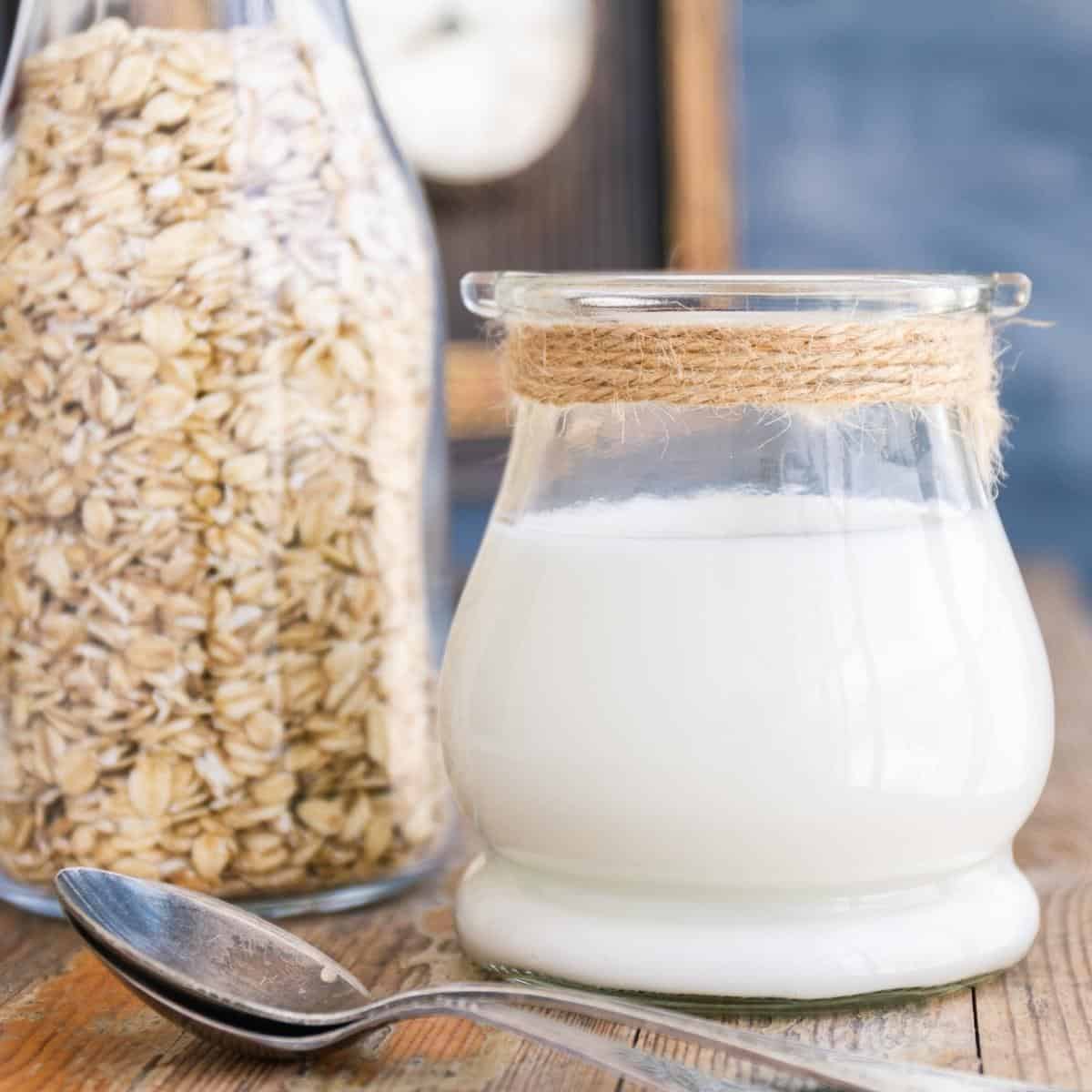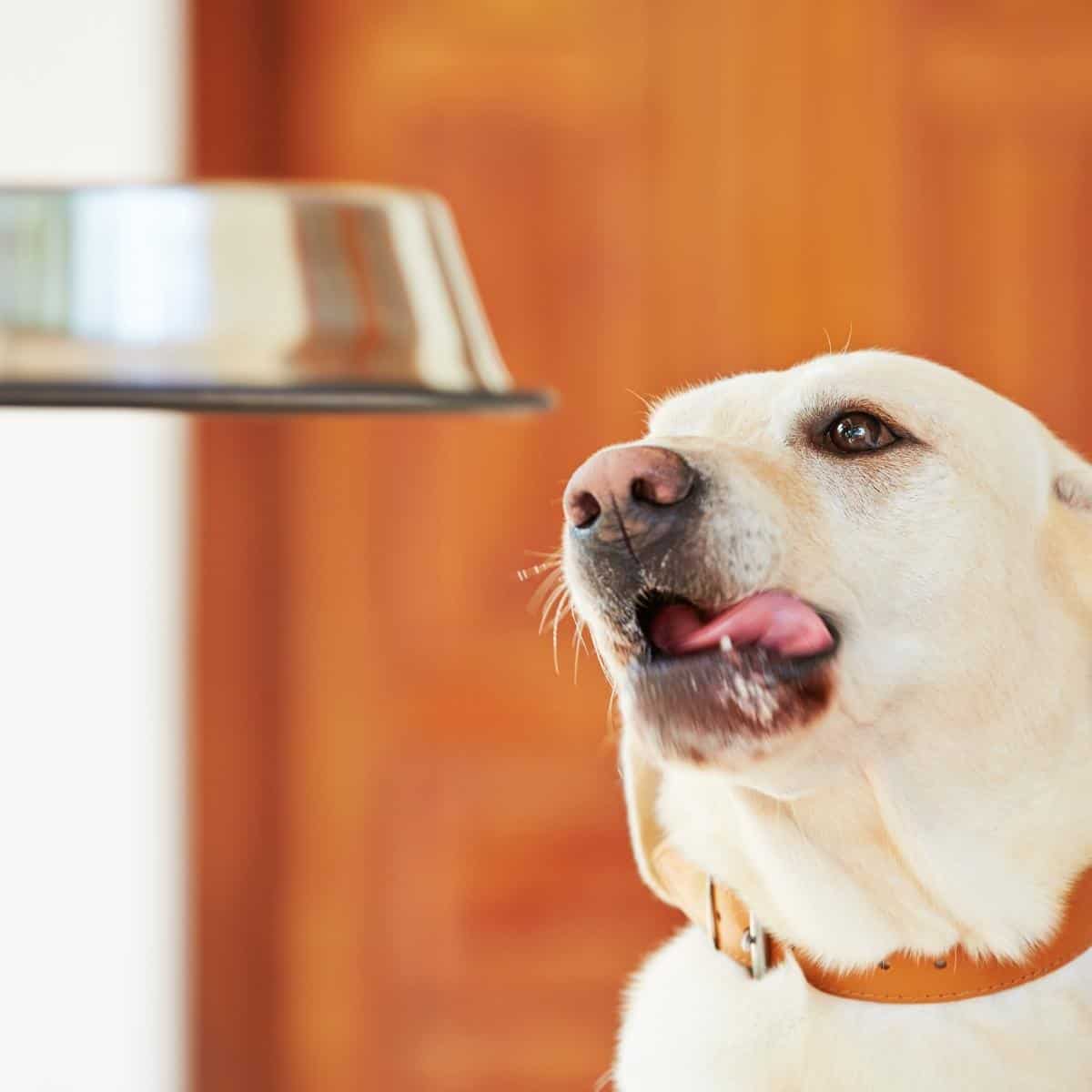Can Dogs Eat Sauerkraut? (4 Amazing Benefits)
If you have ever eaten fermented foods before, you know that the smell is part of the experience. Some may like it, some may not, but there is no denying the scent is strong. Your dog is sure to run over and check out that potent smell when you open up the jar.
While you may just be trying to top your food with sauerkraut in peace, your furry friend is curious for a taste of the strong-smelling food you have. Will any harm come from dogs eating sauerkraut, or is it something they can enjoy too?

What is Sauerkraut?
Sauerkraut is a fermented and thinly sliced (red or green) or shredded cabbage. It has a notably sour flavor from being fermented in lactic acid, as well as a strong smell. Sauerkraut is similar to kimchi, another form of fermented cabbage, and is often used as a topping and accent for foods, such as hot dogs. Sauerkraut is native to Germany and, if you live there, is a common food to have in your home. It is also inexpensive to make and has a very long shelf life.
The fermentation process is what gives sauerkraut its unique taste and scent.
Is Sauerkraut Okay For Dogs To Eat?
Good news! The simple answer is, yes, dogs can eat sauerkraut. Of course, there are always things to consider when feeding your dog human food, and the quantity you feed them always plays an important part in your success of introducing the food. It is important to remember that portion size is extremely important and sauerkraut is meant to act as a topping or a condiment, not a meal! With that being said, this is a treat, not an everyday snack.
There are a few notable health benefits to feeding your dog this German delicacy. The good bacteria in the food from the fermenting process is the most notable, as this helps regulate the gut and produces healthy gut flora. This generally improves your dog’s ability to break down food and absorb nutrients.
It is important when introducing new foods in general, to do so with caution at first and in small amounts to avoid stomach upset and to monitor for an allergic reaction.
It’s also worth noting that this fermented vegetable has a high salt content. Just 1 cup of sauerkraut can have almost 1,000 mg of sodium. Too much sodium can cause salt poisoning in dogs (the most common reason is from eating play doh!). This condition is when our canine companions eat too much salt in a small amount of time. Their cells will begin to let out water to normalize the salt levels, but cause damage to healthy cells.
Salt poisoning symptoms in include seizures, dizziness, dehydration, tachycardia (rapid heartbeat), and confusion because sodium chloride makes the brain cells dry since they are trying to release the water to reduce salts levels in the blood.
Can Sauerkraut Cause Diarrhea In Dogs?
Diarrhea is one of the most common side effects for dogs with upset stomachs; if your dog eats too much of anything, they are likely to get diarrhea. So, yes, if the dog is having an adverse reaction to the food, and it does not agree with their body, then it can cause diarrhea.
This may also be because of the strong probiotic content of sauerkraut, which can be particularly upsetting to smaller-sized dogs, dogs with sensitive stomachs, or older dogs.
If your pup has a case of stomach upset, make sure they are drinking plenty of water. If they are having a hard time keeping that down, give them a little Powerade.
If this treat is introduced slowly and occasionally, your dog is not likely to suffer from diarrhea.
Health Benefits of Sauerkraut for Dogs
Sauerkraut is a treat that dogs seem to love for some reason. Thankfully, there are some benefits for your dog from consuming this potent-smelling condiment.

Does Sauerkraut Contain Probiotics? What Do They Do For Dogs?
Yes. This is one of the best and most significant benefits of sauerkraut. Probiotics are beneficial bacteria that your body needs to function and regulate itself. The different types of good and bad bacteria in your body make up your microbiome, which is responsible for much of your overall health.
In dogs, as well as in humans, consuming probiotics and having a well-balanced microbiome aids in digestion, keeps the digestive tract clean and well-functioning, and allows for better functioning of the body’s systems overall.
Ways to Safely Feed Your Dog Sauerkraut
The safest type to feed your dogs is homemade sauerkraut, raw, and unpasteurized. This is the same across the board with the majority of the food you give to your dog. Store-bought products tend to have more additives and sugar than homemade products. If you are unable to make your own, opting for the brand with the least amount of sodium is best.
It is important to introduce the food in small amounts, slowly, making sure to monitor any negative side effects the dog may have. The most common and fastest appearing side effects include: gas, bloating, vomiting, and diarrhea.
How Much Sauerkraut Should You Feed Your Pup?
To begin, test it out by mixing about 1 teaspoon of sauerkraut in with your dog’s food when they eat. This could also be a way to give them their probiotics if they need the benefits but do not like eating it plain like other dogs. Some love it, and some just love the smell.
Once you have established sauerkraut is tolerable by your dog, the question remains of how much you should feed them. Remember, this is a condiment not a meal. The recommended serving is 1 teaspoon for every 20 pounds.
There is a high probiotic content to sauerkraut, so feeding in small amounts, and not every day, is best. You know too much of a good thing can lead to a bad thing!
Always remember that your dog’s diet should comprise of regular food (high quality dog food with minimal fillers) 90% of the time. The other 10% can include small portions of treats and other human foods such as pineapple, papaya, and other fruits.
Other Common FAQs
No, caraway seeds (aka meridian fennel) are toxic to dogs in large amounts, so it’s best to just avoid them all together. If your dog accidentally ingest a few, they should be fine and will only suffer minor stomach issues.
Yes, and it can be good for their digestive and gut health. However, overfeeding of fermented foods can lead to diarrhea or vomiting.
Dogs can eat pork as long as it is fully cooked and unseasoned. So yes, they can eat sauerkraut and pork together, but not if it is pre-made or prepared in a store. Homemade is best since it is the only way to avoid heavy seasoning and additives.
Short Answer: It is safe for dogs to eat homemade raw and cooked sauerkraut in small amounts.
- Sauerkraut is a fermented cabbage condiment, native to Germany.
- Fermented foods have good bacteria that help to regulate bodily systems, especially the digestive tract.
- Sauerkraut is safe to feed to dogs in small quantities without heavy seasonings and excessive salt.
- There are benefits to feeding dogs sauerkraut since it contains probiotics, vitamins, anti-inflammatory antioxidants, and may help with heart problems.
- Start by mixing 1 teaspoon in with food to see how they react, then feed as needed or occasionally as a treat.
- Feeding your dog too much sauerkraut can cause gas.





